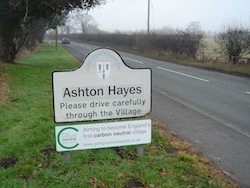According to a survey conducted by the Department of Energy and Climate Change (DECC) located in the UK, more than 50 percent of people surveyed said that saving money on bills would be the major motivations for getting involved with community energy programs. The survey also found that approximately 3.5 million bill payers are ready to get together with other people in their local community to take more control of their energy. Four in 10 respondents said they were already interested in joining a community energy group or are already taking part in collective switching or collective purchasing programs.
DECC notes that local communities will now be able to take control of their energy bills and help to transform the energy system due to a proposal unveiled as part of Britain’s first Community Energy Strategy. The Government’s vision is that every community that wants to take forward an energy project should be able to do so. The Community Energy Strategy sets out how to remove barriers faced by communities that want to take action on energy to create opportunities for more people to get involved.
Energy and Climate Change Secretary Ed Davey said: “We’re at the turning point in developing true community energy. The cost of energy is now a major consideration for household budgets, and I want to encourage groups of people across the country to participate in a community energy movement and take real control of their energy bills. Community led actio n, such as collective switching, gives people the power to bring down bills and encourage competition within the energy market.”
n, such as collective switching, gives people the power to bring down bills and encourage competition within the energy market.”
Under the plans Government will broaden the support available for community energy projects, whereby people come together to reduce their energy use or purchase and generate their own energy. Plans include:
- £10m Urban Community Energy Fund to kick-start community energy generation projects in England;
- £1m Big Energy Saving Network funding to support the work of volunteers helping vulnerable consumers to reduce their energy;
- a community energy saving competition, offering £100,000 to communities to develop innovative approaches to saving energy and money;
- and a “one-stop shop” information resource for people interested in developing community energy projects.
“The Community Energy Strategy marks a change in the way we approach powering our homes and businesses – bringing communities together and helping them save money – and make money too,” said Energy and Climate Change Minister, Greg Barker. “The Coalition is determined to unleash this potential, assist communities to achieve their ambitions and drive forward the decentralised energy revolution. We want to help more consumers of energy to become producers of energy and in doing so help to break the grip of the dominant big energy companies.”
In the future, the generation of electricity by communities themselves could put pressure on energy suppliers to drive down prices, creating warmer homes, cutting carbon emissions and diversifying the UK’s energy mix says DECC. Estimates suggest that energy generation programs involving local communities, such as installing solar panels on social housing buildings, could supply enough electricity for 1 million homes by 2020.

